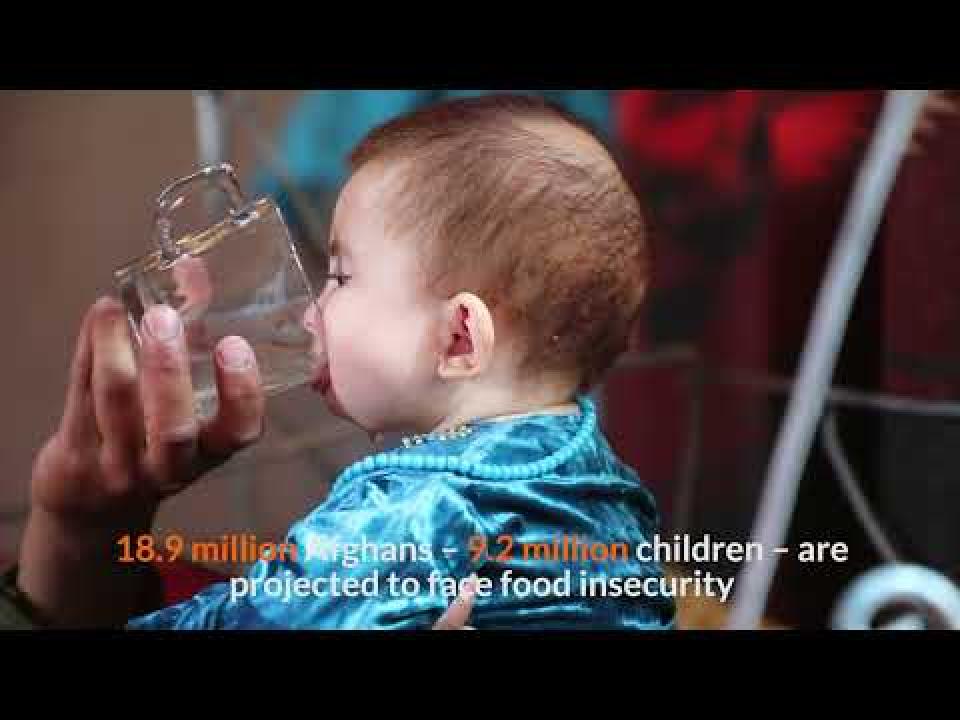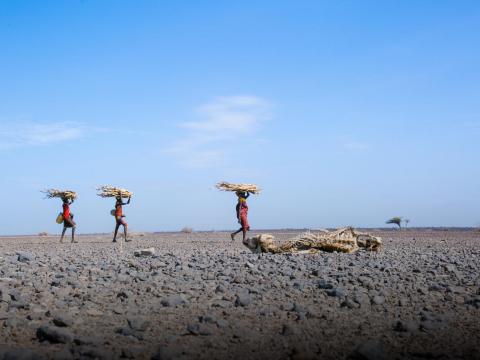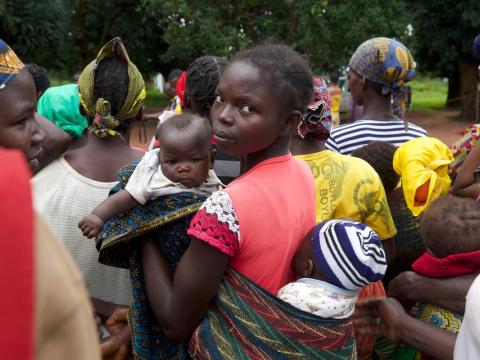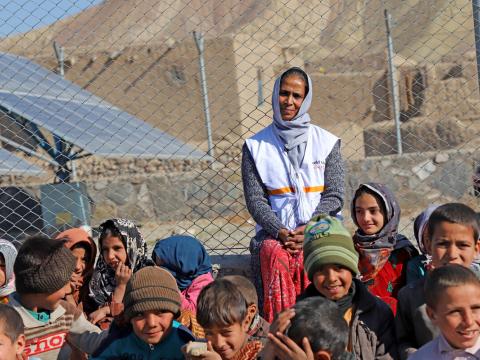
Global inaction will mean death for Afghanistan's hungry children
World Vision Afghanistan's National Director Asuntha Charles gives insight into the desperate humanitarian crisis the country is facing at The Road to the UN General Assembly: Preventing Famine and Fighting Food Insecurity event convened by the Global Network Against Food Crises and High-Level Task Force on Famine Prevention
Afghanistan is currently enduring one of the world's worst humanitarian crises. Almost half of the country's population is food insecure, and a staggering nearly 6 million girls, boys, women and men live in famine-like conditions.
Decades of conflict and insecurity, climate-related disasters, the lingering socioeconomic impacts of COVID-19, and political instability have all contributed to the situation in Afghanistan today.
Families are struggling to survive. Rampant inflation has left many unable to afford even basic goods and services, and an estimated 25 million people – more than two-thirds of the population – are poor.
Even short periods of malnutrition in young children can have devasting long-term consequences on physical and mental development. Today an estimated 3 million Afghan children are acutely malnourished, and at least 1 million children (4 in every 10 children under the age of 5) suffer from stunting – being small for their age – a common and largely irreversible effect of malnutrition.
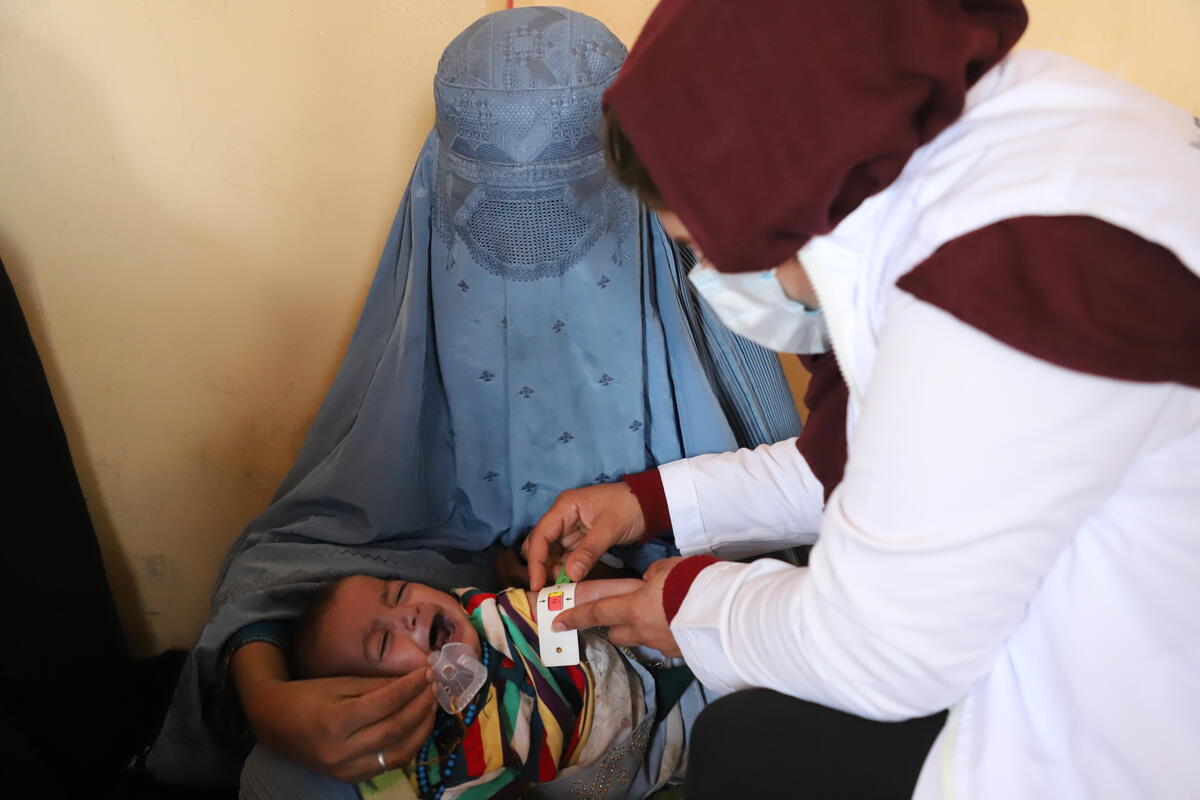
This multi-dimensional crisis and its impacts on livelihoods, incomes, and food security have forced parents and caregivers to make impossible choices that can lead to dangerous and harmful survival decisions for their families. Children are ultimately bearing the disproportionate, devastating consequences.
In some cases, they feel forced to either send their children out to work or arrange child marriages to ensure their survival. Take Muhibullah, a 14-year-old boy we met, for example. Muhibullah was forced to drop out of school to polish shoes to help feed his seven-person family. He told us:
"We rarely have three meals a day in our family . . . I work from the morning to the evening all day, but at the end of the day when I sit and count the money, it is always around 100 Afghanis (~US$1)."
New research conducted by World Vision in the four regions where we work confirms the dire situation so many Afghan children now endure. The findings outline a context in which:
- families are living on less than US$1 a day
- 53% of surveyed households had a child who was acutely malnourished
- 3 out of every 4 boys and 1 out of 2 girls had been forced to drop out of school to work to help their families
- more than half of caregivers reported that their children had missed school due to drought conditions or to fetch water
- 75% of households rely on unsafe water sources.
Urgent action is necessary to protect Afghan children's health, well-being, and futures; avoid preventable child deaths; and address recurrent food crises over the short and long term. The international community must redouble its efforts to find diplomatic solutions to these crises and take action to ensure sanctions and counterterrorism laws, policies, and other measures do not interfere with the delivery of humanitarian aid. The international donor community must make strides in advancing multilateral negotiations to revitalise Afghanistan's aid architecture and restore and expand quality funding in support of a multi-sectoral response that prioritises child survival and protection. Finally, it is essential that all stakeholders listen to Afghanistan's children, their families, and communities and provide support to community-level solutions that address conflict and climate-induced hunger.
There is no time to lose. We must continue to roll out lifesaving operations – food, emergency nutrition, and critical health support, while continuing to invest over the long term to address the root causes of hunger in Afghanistan. Working across the humanitarian-development nexus will reduce suffering now and support a brighter future for Afghanistan's children in the long term.
World Vision has been working in Afghanistan for more than 20 years. You can help us provide children in places like Afghanistan with lifesaving food, cash, clean water, health and hygiene services, protection interventions and more by visiting https://www.wvi.org/emergencies/hunger-crisis
Asuntha Charles is the World Vision Afghanistan National Director. With more than 15 years of experience with humanitarian assistance and community development, she is a strong advocate for women's and children's rights. More information Afghanistan | Field Office | World Vision International (wvi.org)
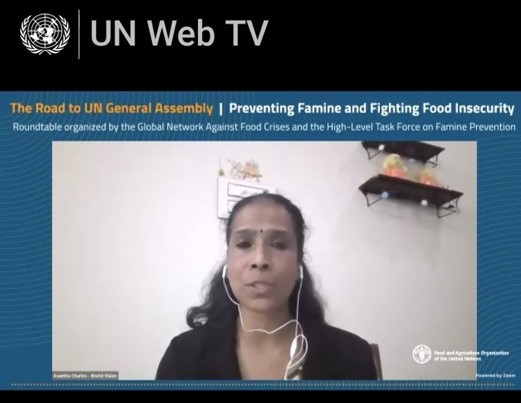
Watch full Roundtable The Road to UNGA: Preventing Famine and Fighting Food Insecurity
The Road to UN General Assembly - Preventing Famine and Fighting Food Insecurity
Roundtable organised by the Global Network Against Food Crises and the High-Level Task Force on Famine Prevention held 12 September 2022
Co-Organisers: HLTF Famine Prevention (OCHA, FAO and WFP) and the Global Network Against Food Crises (UNICEF, WB, EU, US, WFP, FAO). Multilateral Partners: G7 Global Alliance and the Secretary-General’s Global Crisis Response Group on Food, Fuel and Finance. IFIs or other UN partners to be confirmed. NGO Partners: The 58 WFP NGO Compact Partners, international, national and local NGOs and NGOs from the Fighting Food Crises along the HDP Nexus Coalition Cosponsors: Member States
